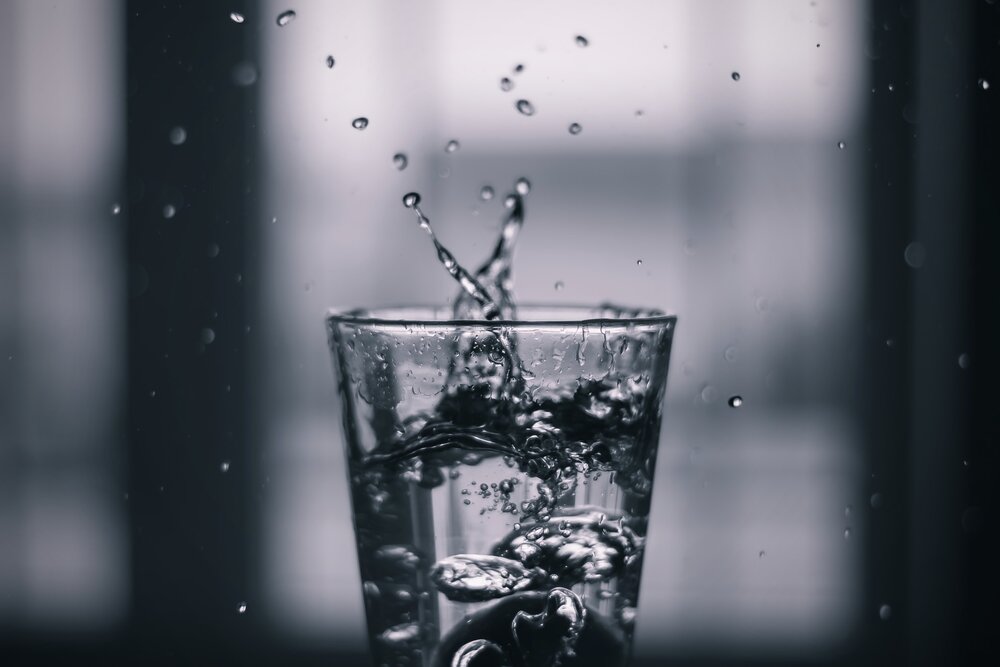- Empty cart.
- Continue Shopping
The Science of Hydration: Why Water is Essential

Water is often referred to as the “elixir of life” because of its fundamental role in maintaining our health and well-being. Our bodies are primarily composed of water, and every cell, tissue, and organ depends on it to function properly.
The Importance of Water
1. Cell Function and Structure: Water is a crucial component of the cell, making up a significant portion of the cell’s structure. It plays a role in various cellular processes, including nutrient transport, waste removal, and energy production.
2. Temperature Regulation: Water helps regulate body temperature through processes like sweating and respiration. When we are hot, we sweat to release heat, and when we are cold, we shiver to generate heat.
3. Digestion and Nutrient Absorption: Water is essential for the digestion of food and the absorption of nutrients in the gastrointestinal tract. It helps break down food particles and facilitates the movement of nutrients into the bloodstream.
4. Joint Lubrication: Synovial fluid, which lubricates the joints and reduces friction, is primarily composed of water. Proper hydration is essential for maintaining joint health and mobility.
5. Cognitive Function: Dehydration can impair cognitive function, including memory, attention, and decision-making. Staying adequately hydrated is crucial for mental clarity and focus.
6. Detoxification: Water is involved in the body’s natural detoxification processes. It helps flush waste products and toxins from the body through urine and sweat.
7. Blood Circulation: Blood is primarily composed of water. Proper hydration helps maintain blood volume, which is essential for transporting oxygen, nutrients, and hormones throughout the body.
How the Body Maintains Hydration
Our bodies have sophisticated mechanisms for maintaining hydration, including:
1. Thirst: The sensation of thirst is our body’s way of signaling that it needs more water. When we’re dehydrated, our brain triggers the feeling of thirst to prompt us to drink fluids.
2. Hormonal Regulation: The hormone vasopressin, also known as antidiuretic hormone (ADH), plays a key role in regulating water balance. It signals the kidneys to reabsorb water and concentrate urine when the body needs to conserve fluids.
3. Kidney Function: The kidneys filter waste products and excess substances from the blood, including excess water. They adjust urine concentration based on the body’s hydration needs.
4. Sweating: When the body overheats, it sweats to cool down. Sweating is a way to release excess heat and maintain temperature balance.
Dehydration and Its Consequences
Dehydration occurs when the body loses more fluids than it takes in. This imbalance can have various consequences, including:
- Mild Dehydration: Symptoms of mild dehydration may include dry mouth, dark urine, fatigue, and reduced urine output. Cognitive function and physical performance can also be affected.
- Moderate Dehydration: As dehydration worsens, symptoms may progress to include increased heart rate, rapid breathing, decreased skin elasticity, and more pronounced fatigue.
- Severe Dehydration: Severe dehydration is a medical emergency. It can lead to symptoms such as extreme thirst, very dark urine, confusion, fainting, and in severe cases, organ failure and death.
How to Stay Hydrated
To maintain proper hydration, it’s important to:
- Drink Enough Water: The amount of water a person needs can vary based on factors like age, sex, activity level, and climate. A general guideline is to aim for about 8 cups (64 ounces) of water per day, but individual needs may vary.
- Listen to Your Body: Pay attention to your body’s signals of thirst. If you’re thirsty, drink water.
- Stay Hydrated During Physical Activity: When you’re active, you lose more fluids through sweat. Drink water before, during, and after exercise to stay hydrated.
- Consume Hydrating Foods: Many fruits and vegetables have high water content and can contribute to your daily hydration needs.
- Limit Dehydrating Beverages: Limit the consumption of beverages that can dehydrate you, such as alcohol and caffeinated drinks.
- Monitor Urine Color: A pale yellow color is a good indicator of proper hydration. Dark yellow or amber urine may signal dehydration.
Finally, Water is essential for every aspect of our body’s functioning, from maintaining cell structure to regulating temperature and supporting cognitive function. Proper hydration is fundamental to overall health and well-being. By understanding the science of hydration and listening to our bodies, we can ensure that we stay adequately hydrated and enjoy the numerous benefits it provides. Remember, staying hydrated is not just a recommendation; it’s a fundamental necessity for life.








